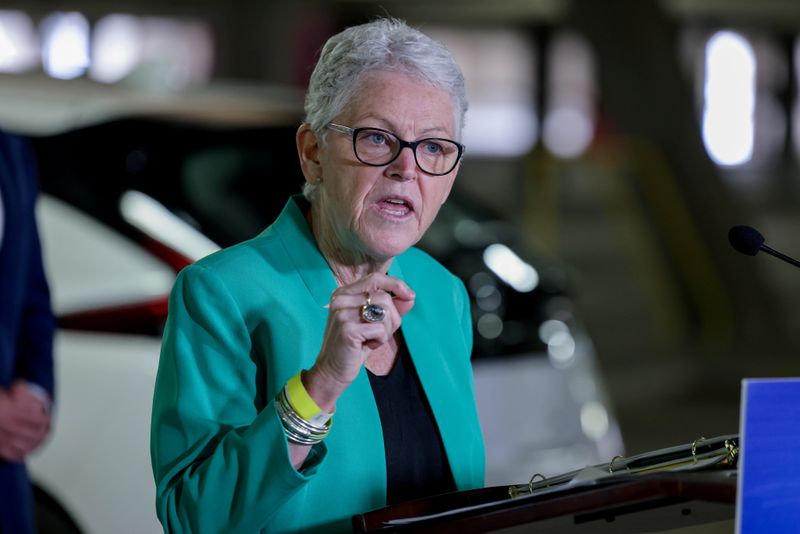By Timothy Gardner
WASHINGTON (Reuters) -A clean electricity standard, or CES, and tax credits for renewable energy are "bottom lines" needed in a second infrastructure package that could be passed this year, Gina McCarthy, the White House climate adviser, said on Wednesday.
Her boss, President Joe Biden, has sought to reassure environmental and progressive groups that he will include key climate policy measures in a second infrastructure package that could be passed on a party line vote through budget reconciliation.
The first package, a bipartisan bill in the works between Biden and lawmakers, does not include a CES, a standard that would reduce emissions by adopting renewables like wind and solar, using nuclear energy, or finding ways to suck up and sequester greenhouse gas emissions from fossil-fuel plants.
"We need to tell the utility world, our power system, where they need to go," McCarthy told a Punchbowl News event about the two-part legislation. A CES "provides a level of certainty for long-term investments that this country needs and we are going to move these pieces together,"
McCarthy sent a memo to Biden Cabinet officials on Tuesday, a copy of which was seen by Reuters, that said a CES that includes electricity efficiency would attract private investment to modernize the grid, cut power bills, and spur union jobs.
Passing a CES could help Biden in his push to decarbonize the power grid by 2035. Analysts say the battle over the infrastructure bills could take until September or beyond, but McCarthy said she was aiming for the end of July.
McCarthy also said the administration is pushing for consumer rebates for electric vehicles in the second package.
A White House fact sheet released last week on the $1.2 trillion bipartisan bill framework did not include new money for electric vehicle rebates but would spend $15 billion to boost EV charging stations and buy electric school and transit buses. Biden had pushed for $100 billion on EV consumer rebates.

Environmental Protection Agency Administrator Michael Regan on Wednesday told reporters at the White House that the current bipartisan framework is still a "historic investment" in both water and climate infrastructure and would dedicate a significant amount of money to replace ageing lead water pipes.
"What I would say is this is a first critical step, but the president is holding tight to his vision" and looking at "all of his options" in pursuit of his climate policy priorities.